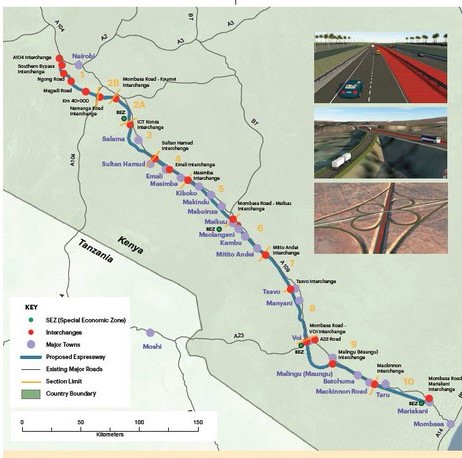Bechtel Rejects Toll Fees for Kenya Highway Project Payment

Bechtel Corp. has declined an offer by the Kenya government to build a 473-kilometer highway and recoup its project costs through toll fees. With Kenya's current government finishing its unrenewable term in August 2022, a decision on what to do with the planned Mombasa-Nairobi expressway is unlikely until a new government is in place.
Kenya’s Parliamentary Budget Office (PBO) stated in a mid-September report that Bechtel has insisted on a contract model where the government pays for the construction of the $2.7-billion Mombasa-Nairobi expressway, which would be the East African country’s first high-speed expressway.
PBO said Kenya’s preference for a tolling concession to pay for construction costs is supported by findings of a study by the Inter-American Development Bank that recommended a public-private partnership (P3) model for the construction of the expressway and tolling if average daily traffic is at least 5000 vehicles.
“This limits the number of roads that can be undertaken by the model in Kenya to a few sections of the main transport corridors,” the PBO report said.
However, the PBO adds: “The contractor (Bechtel) has indicated that the country will get better value for money if the road is constructed under an EPC (Engineering, Procurement and Construction) model rather than a toll model.”
According to Bechtel, which was selected in 2017 by the Kenya National Highways Authority to build the expressway, a P3 would inflate the Mombasa-Nairobi expressway project cost to $15 billion and take longer to complete.
Initially, construction of the expressway was slated to begin in July 2018 with financial support from U.S. and U.K. export credit agencies such as the U.S. Export-Import Bank, the Overseas Private Investment Corporation and U.K. Export Finance. But the financing of the project has been a consistent barrier.
Bechtel spokesperson Aileen Easton, without making specific reference to the Nairobi-Mombasa Expressway project, said in an email response to ENR that the company “remains committed to building infrastructure to improve connectivity and mobility across Kenya and with her neighbors and trading partners.”
“Our approach will always set out to minimize building costs and pursue the fiscally responsible option,” she said. “We are committed to providing the best possible value for money for the Kenyan people.”
She said Bechtel is currently “engaging with the Kenyan Government and local stakeholders, including business and communities, to ensure that we help deliver transformative projects in the right way.”


